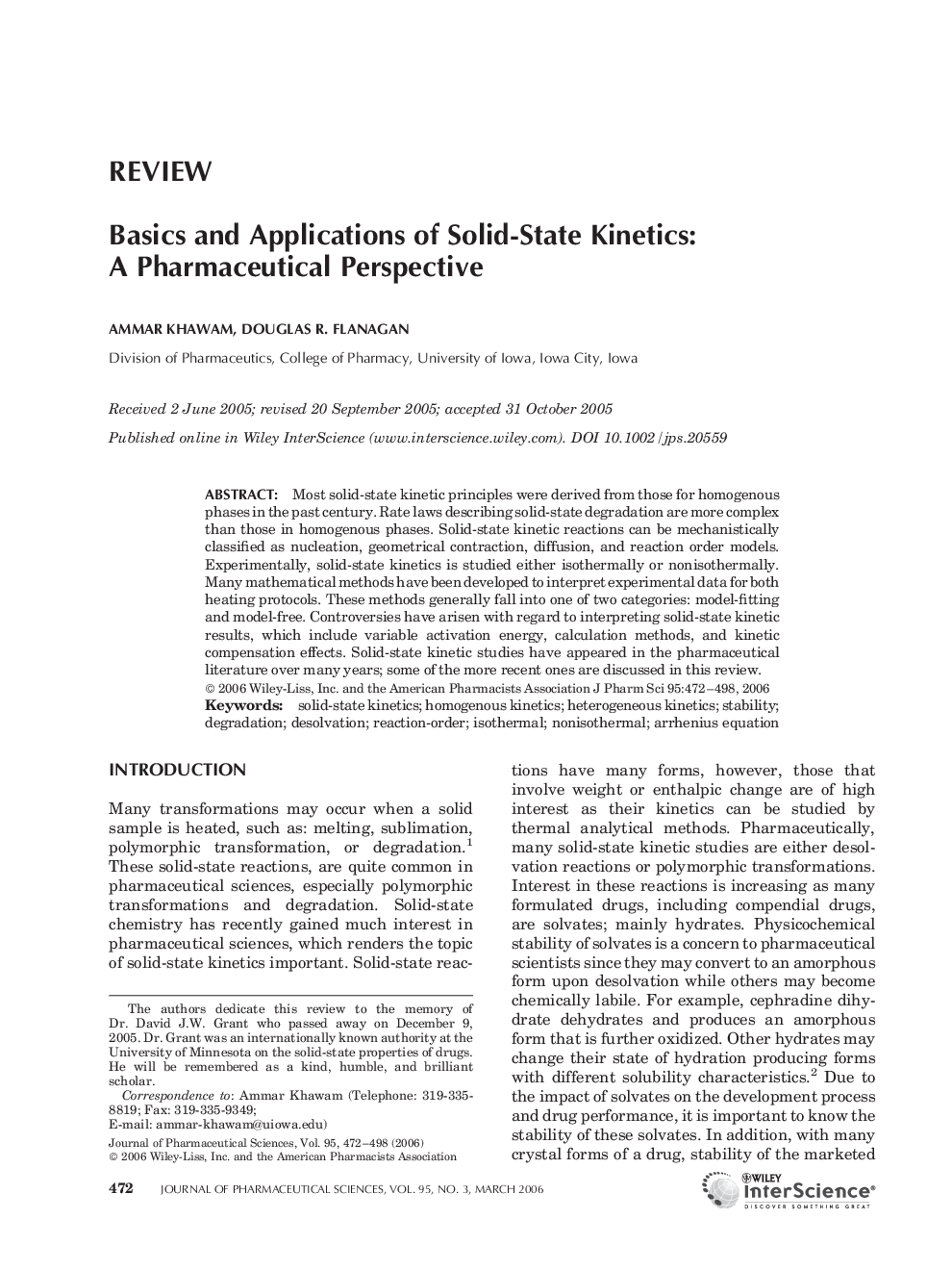| Article ID | Journal | Published Year | Pages | File Type |
|---|---|---|---|---|
| 2488162 | Journal of Pharmaceutical Sciences | 2006 | 27 Pages |
Abstract
Most solid-state kinetic principles were derived from those for homogenous phases in the past century. Rate laws describing solid-state degradation are more complex than those in homogenous phases. Solid-state kinetic reactions can be mechanistically classified as nucleation, geometrical contraction, diffusion, and reaction order models. Experimentally, solid-state kinetics is studied either isothermally or nonisothermally. Many mathematical methods have been developed to interpret experimental data for both heating protocols. These methods generally fall into one of two categories: model-fitting and model-free. Controversies have arisen with regard to interpreting solid-state kinetic results, which include variable activation energy, calculation methods, and kinetic compensation effects. Solid-state kinetic studies have appeared in the pharmaceutical literature over many years; some of the more recent ones are discussed in this review. © 2006 Wiley-Liss, Inc. and the American Pharmacists Association.
Keywords
Related Topics
Health Sciences
Pharmacology, Toxicology and Pharmaceutical Science
Drug Discovery
Authors
Ammar Khawam, Douglas R. Flanagan,
